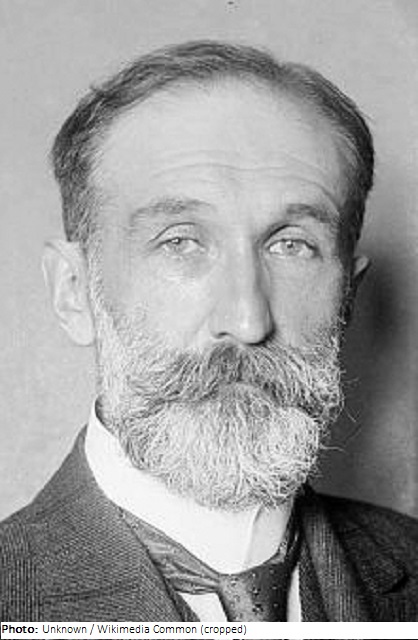Henri Rabaud

Biographical information
| Roles | Referee |
|---|---|
| Sex | Male |
| Full name | Henri Benjamin•Rabaud |
| Used name | Henri•Rabaud |
| Born | 10 November 1873 in Paris VIIIe, Paris (FRA) |
| Died | 11 September 1949 in Neuilly-sur-Seine, Hauts-de-Seine (FRA) |
| NOC |  France France |
Biography
Henri Rabaud was born into a family of musicians. His father was Hippolyte-François Rabaud (1839-1900), a professor of cello at the Paris Conservatory, his grandfather, known as Louis Dorus (1812-1896), was principal flutist at the Paris Opera and also a professor at the Conservatory, his mother was a well-known singer. When Henri Rabaud entered the Paris Conservatory in 1893, where he studied with André Gedalge (1856-1926) and Jules Massenet (1842-1912), he had already composed his Symphony in D minor, his Opus 1. One of his fellow students there was Max d’Ollone.
Rabaud won the Grand Prix de Rome in 1894 with his cantata Daphné. As a resident of the Villa Medici in Roma, he discovered the Italian opera composers. His distinguished conducting career began in 1897. In 1908 he became conductor at the Paris Opera and the Opera-Comique, and from 1914 to 1918 he was director of the opera. His greatest success there was the comic opera Mârouf, savetier du Caire (Mârouf, the Shoemaker of Cairo). Less successful was his first lyrical work for the stage, La Fille de Roland (Roland’s Daughter_). He also wrote the scores for two silent films directed by Raymond Bernard (1891-1977), for instance for “Le Miracle des loups” (The Miracle of the Wolves) from 1924.
From 1918-19, Rabaud was conductor of the Boston Symphony Orchestra. In 1938, he traveled to Latin America, where he also conducted many concerts. After his election to the Académie des Beaux Arts, he succeeded Gabriel Fauré as director of the Paris Conservatoire in 1920, a post he held until his retirement in 1941. During the occupation, he cooperated with the Germans regarding the Jewish teachers and students of the conservatory.
Rabaud composed five operas, two symphonies, a symphonic poem, an oratorio, and a setting of the Fourth Psalm. As a composer, he was conservative and saw modernism as an enemy. He was appointed Knight of the Legion of Honor.
Referee
| Games | Sport (Discipline) / Event | NOC / Team | Phase | Unit | Role | As | |
|---|---|---|---|---|---|---|---|
| 1924 Summer Olympics | Art Competitions |  FRA FRA |
Henri Rabaud | ||||
| Music, Open (Olympic) | Final Standings | Judge |